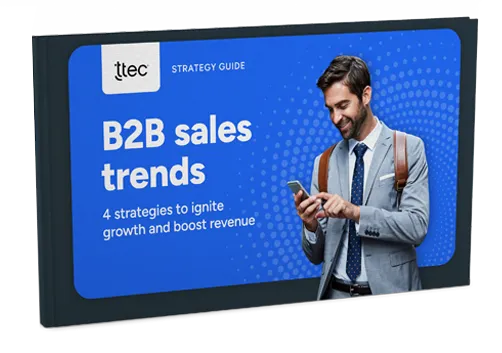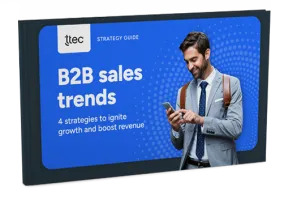Social media is changing the way companies build their brand and engage consumers across the entire customer lifecycle. While much of the attention around social media has been focused on marketing, savvy organizations are now exploring an emerging and powerful frontier: leveraging social media to dramatically enhance customer service. And customers are demanding faster service than ever before; many now expect a response from a company online within minutes. These changes in customer behavior are transforming the customer experience landscape, creating new opportunities and challenges for businesses.
And the stakes for so-called "social CRM" could not be any higher, as research shows that most internet users in the United States use social networks—often as a platform to praise or condemn companies and their products and service. For your business, that means at any given moment your customers are actively gathering somewhere in the social media universe, talking up or shooting down your company, with an endless audience of peer consumers just one Google search away. The potential impact on your brand and bottom line is breathtaking.
While the lion's share of companies is already starting some sort of social CRM program, many are still treating it as an experiment. Having a Facebook page and three college interns, or simply buying a social listening tool, doesn't count as a social CRM program, and won't allow your business to capitalize on the opportunities or manage the risks of the social media universe. Whether you attract brand promoters or die-hard brand detractors depends on your organization's ability to build and manage an effective, unified social CRM platform. The first step in doing so is gaining a true understanding of social CRM.
Defining social CRM
Not sure what social CRM means exactly? You're not alone. There is still a great deal of confusion about exactly how to define it and how to gauge its potential to enhance service and sales. Many companies are also struggling with how to effectively operationalize social CRM to drive specific business outcomes (e.g., issue resolution, customer satisfaction, revenue growth, and cost savings) when there are so many different channels and tools available, and so much "noise" in the social media space.
To best understand social CRM, you need to examine the dramatic changes in how consumers learn and communicate about a brand, and how they look for information and support when they have a product issue.
In the past consumers learned about companies and products in what was essentially a finite universe: their friends and colleagues, paid advertising (print, radio, TV, direct mail, billboards), and the news media. Companies had massive influence over how they were portrayed and perceived. With the advent of the Internet and social media, the business-customer relationship has been turned upside down. Today, consumers are inundated with information about brands and products from an unlimited number of peer consumers across an unlimited number of channels: company sites, online communities and forums, blogs, microblogs like Twitter, and social networks like Facebook. Companies have to work harder than ever before to have their message heard and to understand what consumers are saying and thinking about them. Companies can no longer buy media, they have to earn it.
For example: Jane Doe hears about a new smartphone from a friend at work. In the past she would probably have gone into the company's store or to a reseller, spoken to a sales associate, and heard the company's official "pitch." Today, her first stop is Google. She does a search of the product name, company, or a description of the product. The company's official website or product website pops up, and she quickly peruses it. Then she returns to her search results and skims a wide menu of content about the phone: media reviews, bulletin board comments in online technology forums, blog posts, etc. She hears the good, but also the bad about the product and is unsure about whether to buy the phone. So she logs on to Facebook and posts a status update: "Thinking of buying the new XYZ smartphone. Any advice?" Within minutes a friend comments that she should check out the manufacturer's branded Facebook page. She does, but the company's page contains little helpful information, and the comments from users are mostly negative, criticizing the company for not working out the bugs on the new model. She decides not to buy the phone, and to try a competitor's product instead. She turns back to her own Facebook page and updates her status: "Passed on the XYZ phone. I hear it's full of bugs."
The result? The company just lost a sale and missed an opportunity to turn Jane Doe into a buyer and potential brand advocate. Worse, Jane, everyone on her friends list, and everyone she talks to at work or at the bus stop hears negative buzz about the new phone and the company. And guess what? Those people, in turn, are spreading that buzz to their friends.
In the new world of social media, companies have to become much more active in social channels in order to get their voices heard. However, because customers now have unprecedented power, companies have to play by the customers' rules. That means focusing on engagement, empowerment, and relationships—and steering clear of one-way company sales pitches or irrelevant information that fails to fully meet customer needs.
What then is the best way to define social CRM?
Essentially, social CRM is a collaborative conversation between a brand or company and its constituents—a conversation in which the company engages in a two-way dialogue that provides value and deepens the quality of the relationship. It's the intersection of three separate and powerful forces: customer communities and content on the Web hosted by companies; social networks outside of the organization that are driven by customers (Facebook, Twitter, blogs, independent forums); and traditional CRM practices, channels, and systems.
Social CRM could include answering a question about a product a customer owns or wants to buy or a service he or she uses, or it could manage or resolve a customer's sales or service issue. The key concept here is conversation. The dialogue between a company and its audience must be authentic, interactive, and transparent to be effective and to meet the needs of all parties involved. The conversation also has to be deliberate, strategic, and content rich; although social media may be fluid and informal, organizations need a way to operationalize their interactions to ensure the consistency and quality of their engagement.
One way companies should do this is by actively listening to what consumers are saying on the Web—in their own communities and across the social universe—through digital analysis and monitoring discussion forums, and then recruiting brand promoters, as well as responding and solving issues through a team of trained social CRM sales and service associates. These associates should have the dual role of providing content and services, as well as enabling and creating customer brand advocates. In addition, companies have to analyze and leverage information collected through social CRM efforts and integrate it into their existing CRM infrastructure, so they can better serve their customers, build deeper relationships, and monetize their social CRM investment through cross-selling and brand advocates who urge other consumers to buy.
Social CRM provides critical opportunities to companies across industries to interact with customers in a more personal and relevant manner. Businesses no longer have a choice of whether or not to engage; to stay competitive and to truly understand and engage their customers, companies must build a comprehensive social CRM strategy that covers the entire customer landscape. Simply put, today you can't do CRM without social.
However, successful social CRM programs require deep expertise and a thoughtful approach. Companies need to ensure they have the right strategy, systems and processes, people, and technologies, as well as the right partners. And companies need to commit. It's not enough—and in fact, it can be downright dangerous—to just dabble in social media. You have to devote the resources needed to truly understand and be an active participant in social media to capitalize on its full potential. For the companies that succeed, the benefits can be both profound and game-changing, including better understanding your customer base, developing an army of devoted brand advocates, and creating dynamic new revenue engines and efficiencies.

















